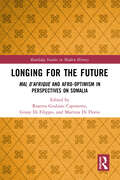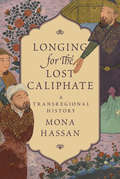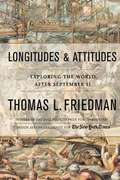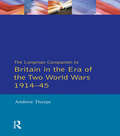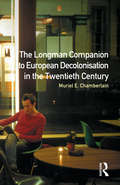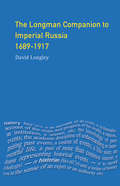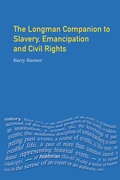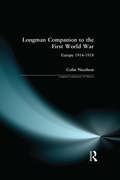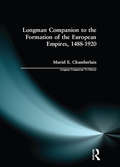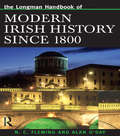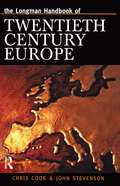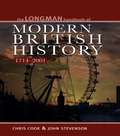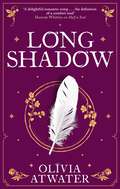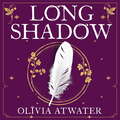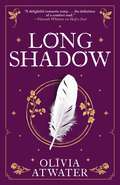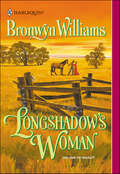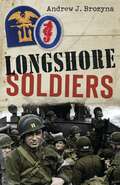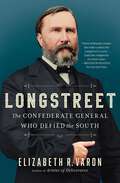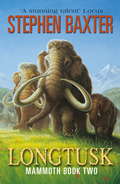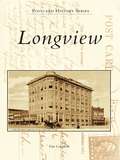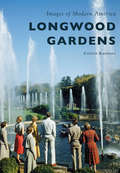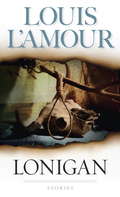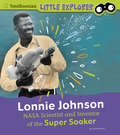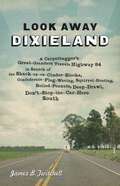- Table View
- List View
Longing for the Future: Mal D’Afrique and Afro-Optimism in Perspectives on Somalia (Routledge Studies in Modern History)
by Rosetta Giuliani Caponetto Giusy Di Filippo Martina Di FlorioThis volume focuses on a longing projected mostly toward the past (mal d’Afrique) alongside a longing toward the future (afro-optimism), and the different manifestations, shifting meanings, and potential points of contact of these two stances. The volume introduces a new perspective into the discussion of Somalia in Italian Studies. This is an intersectional work of Italian Studies scholarship, whose contributors help re-imagine the field and its relationship to Somalia with their diverse backgrounds, unique insights, and global breadth. The book integrates the current scholarship on Somalia with the most recent theoretical studies on nostalgia, visionary affect, colonial ruins, silenced archives, melancholy, ecology, food and diaspora, classical studies and performativity, storytelling, afro-fabulation and queer literature, media and humanitarianism, and afro optimism. The book will serve as an invaluable reference in multidisciplinary programs such as Global History, Africana Studies, Diaspora Studies, Migration Studies, Peace and Conflict Studies, Integrity and Global Studies, as well as Italian Studies and various core courses. Because of its interdisciplinary discussion of Somalia, the volume will draw the interest of a large readership among scholars, and non-scholars, from different disciplines and geographic affiliation.
Longing for the Lost Caliphate: A Transregional History
by Mona HassanIn the United States and Europe, the word "caliphate" has conjured historically romantic and increasingly pernicious associations. Yet the caliphate's significance in Islamic history and Muslim culture remains poorly understood. This book explores the myriad meanings of the caliphate for Muslims around the world through the analytical lens of two key moments of loss in the thirteenth and twentieth centuries. Through extensive primary-source research, Mona Hassan explores the rich constellation of interpretations created by religious scholars, historians, musicians, statesmen, poets, and intellectuals.Hassan fills a scholarly gap regarding Muslim reactions to the destruction of the Abbasid caliphate in Baghdad in 1258 and challenges the notion that the Mongol onslaught signaled an end to the critical engagement of Muslim jurists and intellectuals with the idea of an Islamic caliphate. She also situates Muslim responses to the dramatic abolition of the Ottoman caliphate in 1924 as part of a longer trajectory of transregional cultural memory, revealing commonalities and differences in how modern Muslims have creatively interpreted and reinterpreted their heritage. Hassan examines how poignant memories of the lost caliphate have been evoked in Muslim culture, law, and politics, similar to the losses and repercussions experienced by other religious communities, including the destruction of the Second Temple for Jews and the fall of Rome for Christians. A global history, Longing for the Lost Caliphate delves into why the caliphate has been so important to Muslims in vastly different eras and places.
Longitudes and Attitudes: Exploring the World After September 11
by Thomas L. FriedmanHow America changed after 9/11
Longman Companion to Britain in the Era of the Two World Wars 1914-45, The (Longman Companions To History)
by Andrew ThorpeIn the momentous period -- barely 30 years -- covered by this systematic reference/guide, the Edwardian world was transformed unrecognisably, through war, technological progress and social change, into the Nuclear Age. It saw the coming of mass democracy, the apogee of empire, the Depression, the threat of fascism, the development of suburban society, and, as yet scarcely understood, the end of Britain's international hegemony. Andrew Thorpe's superb contribution to the Companions series illuminates all this and much else. It will be indispensable to anyone interested in the history and politics of modern Britain.
Longman Companion to European Decolonisation in the Twentieth Century
by Muriel E. ChamberlainThis new Companion brings together, in one single volume, all the essential facts and figures relating to European decolonisation in the twentieth century. Professor Chamberlain has taken each European empire in turn (the British, French, Dutch, Portuguese, Spanish, Belgian and Italian) and for each one she has provided a detailed chronology of the process of decolonisation in the individual states.
Longman Companion to Imperial Russia, 1689-1917
by David LongleyThis is the first book of its kind to draw together information on the major events in Russian history from 1695 to 1917 - covering the eventful period from the accession of Peter the Great to the fall of Nicholas II. Not only is a vast amount of material on key events and topics brought together, but the book also contains fascinating background material to convey the reality of life in the period.
Longman Companion to Slavery, Emancipation and Civil Rights
by Harry HarmerThis Companion provides the essential background to the defining fate of the African diaspora in the Americas and the Caribbean from the 15th to the 20th centuries. Central to the book are detailed chronologies on the development and decline of the slave trade, slavery in colonial North and South America, the Caribbean and the United States, movements for emancipation, and the progress of black civil rights. Separate sections look at the long-running resistance against slavery and the black civil rights movements in the Americas and the Caribbean, with a comparative chronology of apartheid in South Africa. Supported by biographies of over 100 key individuals and a full glossary providing definitions of crucial terms, expressions, ideas and events, this is required reading for anyone interested in the historical experience of slavery.
Longman Companion to the First World War: Europe 1914-1918 (Longman Companions To History)
by Colin NicolsonThis new Companion covers one of the most devastating conflicts in modern history. The Great War traumatised a generation and shaped the whole of the twentieth century. Speaking as loudly as any first-hand account, the facts and figures laid out in this volume reveal the sheer massive destruction caused by the war. Covering all aspects of the conflict from its origins and course to the peace settlements and the crises they generated, Colin Nicolson unravels historical controversies and also considers the social, cultural and economic consequences of the war for the whole of Europe. Containing all the essential facts and figures this Companion will be greatly welcomed by teachers, academics and students alike.
Longman Companion to the Formation of the European Empires, 1488-1920 (Longman Companions To History)
by Muriel E. ChamberlainThe European empires as they existed from the Age of Discovery until after the First World War shaped the modern world. So great has been their political, economic and cultural influence that to fully understand contemporary history and events, it is essential to have an understanding of the imperial past. This book is an impressive achievement. It brings together in one comprehensive volume, all the essential facts and figures relating to the process of empire-building by the European powers. It complements the Longman Companion to European Decolonisation in the Twentieth Century by the same author - together they help to explain why different empires had different philosophies, dissolved in different ways, and left different legacies.
Longman Handbook of Modern Irish History Since 1800
by Alan O'DayThis compact and accessible reference work provides all the essential facts and figures about major aspects of modern Irish history from the passing of the Act of Union to the premiership of Bertie Ahern.Offering a full chronology , this book gives the reader a full insight on major aspects of modern Irish history. The book explores population, education, social structure and religion; economic statistics covering agriculture, trade, prices and wages, transport and unemployment and a further wealth of material on Irish women's history, treaties, elections, law, communications, a glossary and biographical information.
Longman Handbook of Twentieth Century Europe (Longman Companions To History)
by Chris Cook J. StevensonThe twentieth century was one of constant upheaval across Europe. The continent saw wars, revolutions and the collapse of empires and a range of leading figures from Stolypin and Stalin to Chirac, Schroder and Putin. This book provides a detailed yet wide-ranging guide to the turbulent events of twentieth century Europe. Covering the whole period from Tsarist Russia and Imperial Germany to the Balkan Wars of the 1990’s and the final birth of the Euro in 2002, it provides a convenient user-friendly compendium of key fact and figures for the whole of Europe – from the Atlantic to the Urals.
Longman Handbook to Modern British History 1714 - 2001 (Longman Handbooks To History)
by John Stevenson Chris CookThis compact and accessible reference work provides all the essential facts and figures about major aspects of modern British history from the death of Queen Anne to the end of the 1990s. The Longman Handbook of Modern British History has been extended to include a fully-revised bibliography (reflecting the wealth of newly published material in recent years), the new statistics on social and economic history and an expanded glossary of terms. The political chronologies have been revised to include the electoral defeat of John Major and the record of New Labour in office. Designed for the student and general reader, this highly-successful handbook provides a wealth of varied data within the confines of a single volume.
Longshadow (Regency Faerie Tales #3)
by Olivia Atwater'Smart and subversive, these charming romances will ignite your heart-and your hope' Shelley Parker-Chan, author of She Who Became the SunProper Regency ladies are not supposed to become magicians - but Miss Abigail Wilder is far from proper.The marriageable young ladies of London are dying mysteriously, and Abigail Wilder intends to discover why. Abigail's father, the Lord Sorcier of England, believes that a dark lord of faerie is involved - but while Abigail is willing to match her magic against Lord Longshadow, neither her father nor high society believe that she is capable of doing so.Thankfully, Abigail is not the only one investigating the terrible events in London. Mercy, a street rat and self-taught magician, insists on joining Abigail to unravel the mystery. But while Mercy's own magic is strange and foreboding, she may well post an even greater danger to Abigail's heart. From the author of HALF A SOUL comes a queer faerie tale romance full of love and defiant hope. Pick up LONGSHADOW, and return once more to Olivia Atwater's charming, magical version of Regency England.Praise for Olivia Atwater:'Half a Soul is the perfect balm for these bad times. It's whimsical but never frivolous, sweet but not sugary, deeply kind rather than merely nice. I loved it' Alix E. Harrow on Half a Soul'A delightful, romantic romp that also deftly examines class and privilege, Half a Soul is the definition of a comfort read' Hannah Whitten on Half a Soul'A perfect historical fantasy romance: warm, sparkling with magic, dangerous and delightful. I absolutely adored it.' Tasha Suri, author of The Jasmine Throne on Half a Soul'A hugely enjoyable take on the Regency. . . I wolfed this down with great pleasure' KJ Charles on Half a Soul'Whimsical, witty, and brimming over with charm' India Holton, author of The Wisteria Society of Lady Scoundrels on Half a Soul'Half a Soul is exactly the comfort read we all need. . . it sweeps you off your feet in the swooniest way possible' Megan Bannen, author of The Undertaking of Hart and Mercy on Half a Soul'A charming and original take on both the fae and the Regency fantasy genre, with plenty of humour and heart. I couldn't put it down.' Heather Fawcett, author of Emily Wilde's Encyclopaedia of Faeries on Half a Soul
Longshadow (Regency Faerie Tales #3)
by Olivia Atwater'Smart and subversive, these charming romances will ignite your heart - and your hope' Shelley Parker-Chan, author of She Who Became the SunProper Regency ladies are not supposed to become magicians - but Miss Abigail Wilder is far from proper.The marriageable young ladies of London are dying mysteriously, and Abigail Wilder intends to discover why. Abigail's father, the Lord Sorcier of England, believes that a dark lord of faerie is involved - but while Abigail is willing to match her magic against Lord Longshadow, neither her father nor high society believe that she is capable of doing so.Thankfully, Abigail is not the only one investigating the terrible events in London. Mercy, a street rat and self-taught magician, insists on joining Abigail to unravel the mystery. But while Mercy's own magic is strange and foreboding, she may well pose an even greater danger to Abigail's heart. From the author of HALF A SOUL comes a queer faerie tale romance full of love and defiant hope. Pick up LONGSHADOW, and return once more to Olivia Atwater's charming, magical version of Regency England.Praise for Olivia Atwater:'Half a Soul is the perfect balm for these bad times. It's whimsical but never frivolous, sweet but not sugary, deeply kind rather than merely nice. I loved it' Alix E. Harrow on Half a Soul'A delightful, romantic romp that also deftly examines class and privilege, Half a Soul is the definition of a comfort read' Hannah Whitten on Half a Soul'A perfect historical fantasy romance: warm, sparkling with magic, dangerous and delightful. I absolutely adored it.' Tasha Suri, author of The Jasmine Throne on Half a Soul'A hugely enjoyable take on the Regency. . . I wolfed this down with great pleasure' KJ Charles on Half a Soul'Whimsical, witty, and brimming over with charm' India Holton, author of The Wisteria Society of Lady Scoundrels on Half a Soul'Half a Soul is exactly the comfort read we all need. . . it sweeps you off your feet in the swooniest way possible' Megan Bannen, author of The Undertaking of Hart and Mercy on Half a Soul'A charming and original take on both the fae and the Regency fantasy genre, with plenty of humour and heart. I couldn't put it down.' Heather Fawcett, author of Emily Wilde's Encyclopaedia of Faeries on Half a Soul
Longshadow (Regency Faerie Tales #3)
by Olivia AtwaterProper Regency ladies are not supposed to become magicians—but Miss Abigail Wilder is far from proper.The marriageable young ladies of London are dying mysteriously, and Abigail Wilder intends to discover why. Abigail&’s father, the Lord Sorcier of England, believes that a dark lord of faerie is involved. But while Abigail is willing to match her magic against Lord Longshadow, neither her father nor high society believes that she is capable of doing so.Thankfully, Abigail is not the only one investigating the terrible events. Mercy, a street rat and self-taught magician, insists on joining Abigail in unraveling the mystery. Mercy is unpredictable, and her magic is strange and foreboding—but the greatest danger she poses may well be to Abigail&’s heart. A queer romantic faerie tale of defiant hope and love against all odds, set in Olivia Atwater&’s enchanting version of Regency England.Praise for the Regency Faerie Tales&“A delightful, romantic romp. The definition of a comfort read.&” —Hannah Whitten &“Fully a delight! Whimsical, witty, and brimming over with charm.&” —India Holton&“Sweeps you off your feet in the swooniest way possible.&” —Megan Bannen&“I wolfed this down with great pleasure.&” —KJ Charles&“Whimsical but never frivolous, sweet but not sugary. I loved it.&” —Alix E. Harrow&“A perfect historical fantasy romance: Warm, sparkling with magic, dangerous, and delightful.&” —Tasha Suri
Longshadow's Woman
by Bronwyn WilliamsJonah Longshadow had never walked an easy road. Now the hands of destiny had yanked him from a white man's prison and set him down on a hardscrabble farm, paired with a woman whose quiet courage and gentle kindness filled him with dreams that a man like him had no business dreaming.....Two dollars' worth of trouble-that's what Carrie Adams had probably bought herself when she paid Jonah Longshadow's freedom. But she needed strong hands to help her tend her land, and this mountain of a man seemed made to order. The only thing she hadn't counted on was her heart entering into the bargain.
Longshore Soldiers
by Andrew BrozynaLongshore Soldiers chronicles the wartime experiences of port battalion veterans, part of the US Army's Transportation Corps, responsible for ensuring military were delivered to the front line. The author, Andrew Brozyna, traces the stories of the veterans from training in the US, to supplying the beaches of Normandy, dock work in Antwerp, supply for the British at El Alamein and finally to deactivation. Longshore Soldiers offers a compelling narrative, packed with first-hand accounts and personal histories, of an overlooked aspect of the Second World War. The author examines the logistics of the European theatre and how these veterans kept the Allied armies moving as they marched into the Reich.
Longstreet: The Confederate General Who Defied the South
by Elizabeth VaronWinner, American Battlefield Trust Prize for History Winner, Library of Virginia Literary Award for Nonfiction Finalist, Los Angeles Times Book Prize for Biography A &“compelling portrait&” (Jon Meacham, Pulitzer Prize–winning author) of the controversial Confederate general who later embraced Reconstruction and became an outcast in the South. It was the most remarkable political about-face in American history. During the Civil War, General James Longstreet fought tenaciously for the Confederacy. He was alongside Lee at Gettysburg (and counseled him not to order the ill-fated attacks on entrenched Union forces there). He won a major Confederate victory at Chickamauga and was seriously wounded during a later battle. After the war, Longstreet moved to New Orleans, where he dramatically changed course. He supported Black voting and joined the newly elected, integrated postwar government in Louisiana. When white supremacists took up arms to oust that government, Longstreet, leading the interracial state militia, did battle against former Confederates. His defiance ignited a firestorm of controversy, as white Southerners branded him a race traitor and blamed him retroactively for the South&’s defeat in the Civil War. Although he was one of the highest-ranking Confederate generals, Longstreet has never been commemorated with statues or other memorials in the South because of his postwar actions in rejecting the Lost Cause mythology and urging racial reconciliation. He is being discovered in the new age of racial reckoning as &“one of the most enduringly relevant voices in American history&” (The Wall Street Journal). This is the first authoritative biography in decades and the first that &“brilliantly creates the wider context for Longstreet&’s career&” (The New York Times).
Longtusk
by Stephen BaxterTakes the story of the mammoths back into prehistory; 16,000 B.C.It is a time when the mammoths face the vicious intrusions into their world of the Lost - mankind. And it is up to Longtusk, the only Bull to feature in the great story cycle of the mammoths to lead them away to a new land, safe from the lost.
Longtusk
by Stephen BaxterTakes the story of the mammoths back into prehistory; 16,000 B.C.It is a time when the mammoths face the vicious intrusions into their world of the Lost - mankind. And it is up to Longtusk, the only Bull to feature in the great story cycle of the mammoths to lead them away to a new land, safe from the lost.
Longview (Postcard History)
by Van CraddockSituated in the East Texas Piney Woods, Longview was established in 1870 when O. H. Methvin deeded land to the Southern Pacific to build a railroad station. The village became the county seat of Gregg County in 1873 and quickly prospered as a rail, cotton, and manufacturing center. The discovery of the East Texas Oil Field in 1930-1931 revealed that Longview sat in the middle of the world's largest pool of petroleum. The boom had begun! Today Longview is home to almost 80,000 residents. The city that bills itself as "Real East Texas" is a manufacturing, medical, and educational center and home to such events as the Great Texas Balloon Race and AlleyFest arts festival.
Longwood Gardens
by Colvin RandallThirty miles west of Philadelphia in the historic Brandywine Valley of southeastern Pennsylvania blooms Longwood Gardens, one of the world�s great horticultural centers. The original arboretum was planted beginning about 1800 by a Quaker family named Peirce. Industrialist Pierre Samuel du Pont (1870�1954) bought the property in 1906 to save its historic trees and make it a place where he could entertain his friends and the public. For three decades, he created an astounding collection of gardens, conservatories, and fountains and a perfect setting for the performing arts. Since du Pont�s death in 1954, Longwood Gardens has continued to evolve from a private estate to a very public garden, with renowned designers creating new landscapes to enhance the enjoyment of more than a million guests each year.
Lonigan: Stories
by Louis L'AmourIn this exciting collection of short stories, Louis L&’Amour, the legendary voice of the American West, celebrates the unique breed of men who worked the great cattle ranches. Men like Dan Regan, who refused to surrender when trouble came . . . Con Fargo, who would fight for what was his—despite the odds . . . Rowdy Horn, a small-time rancher with big-time dreams . . . Tandy Thayer, too loyal to forget a friend . . . Bill Carey, who might have fallen low, but not low enough to let the likes of Tabat Ryerson ride off with a woman like Jane Conway . . . and in the classic title story, Danny Lonigan, a hard rider who faced a group of rustlers without fear—or mercy.
Lonnie Johnson: NASA Scientist and Inventor of the Super Soaker (Little Inventor)
by Lucia RaatmaWhy is Lonnie Johnson important? He invented the Super Soaker! Readers follow his journey from a NASA engineer working on missions to Jupiter and Saturn to becoming the inventor of one of the most popular toys in the United States. This story of hard work is filled with engaging text and colorful images, all reviewed by Smithsonian experts.
Look Away Dixieland: A Carpetbagger's Great-Grandson Travels Highway 84 in Search of the Shack-up-on-Cinder-Blocks, Confederate-Flag-Waving, Squirrel-Hunting, Boiled-Peanuts, Deep-Drawl, Don't-Stop-the-Car-Here South
by James B. TwitchellAs a boy, James Twitchell heard stories about his ancestors in Louisiana and even played with his great-grandfather's Civil War sword, but he never appreciated the state and the events that influenced a pivotal chapter in his family history. His great-grandfather, Marshall Harvey Twitchell, a carpetbagger from Vermont, had settled in upstate Louisiana during Reconstruction, married a local girl, and encountered much success until a fateful day in August 1874. The dramatic story of the elder Twitchell's life and near assassination fuels the author's pursuit of his family's history and a true understanding of the South.In Look Away, Dixieland, Vermont-native Twitchell sets out from his current home inFlorida on the inauguration day of America's first black president to find the "real" South and to try to understand the truth about his illustrious ancestor. He travels in an RV from Georgia's Okefenokee Swamp across Alabama and Mississippi to Coushatta, Louisiana. As he drives through the heart of Dixie, Twitchell sorts through the prejudices he learned from his northern rearing. In searching for the culture he had held at arm's length for so long, he tours small-town southern life -- in campgrounds, cotton gins, churches, country fairs, and squirrel dog kennels -- and uncovers some fundamental truths along the way. Notably, he discovers that prejudices of race, class, and ideology are not limited by geography. As one man from Georgia mockingly summed up North versus South stereotypes, "Y'all are rude and we're stupid."Unexpectedly, Twitchell also uncovers facts about his great-grandfather and sheds new light on his family's past. An enlightening, humorous, and refreshingly honest search, Look Away, Dixieland reveals some of the differences and similarities that ultimately define us as a nation.
